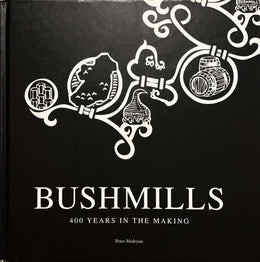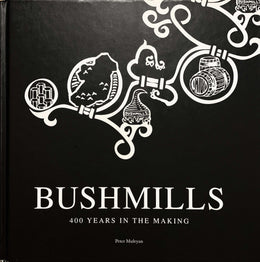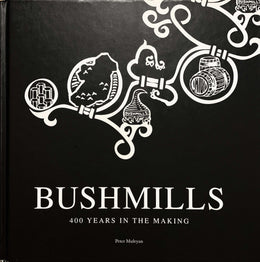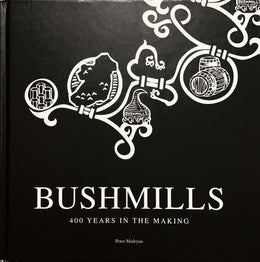Chapter 12: The Death Of A Fleet; “Orkney Stories: A specially commissioned collection by Highland Park”

In May 1919, Britain and Germany were still officially at war. There was an Armistice but not yet a Peace. In the last moments before the Peace was concluded, the placid waters of Scapa Flow were witness to one of the most extraordinary episodes in naval history.
No admiral in history has had a sadder command than Vice Admiral von Reuter of the Imperial German Navy. His flag flew over the High Seas Fleet, a mighty armada of seventy-one battle ships, battlecruisers, cruisers and destroyers. Among them were the most advanced fighting machines the world had yet seen. But this whole proud navy lay impotent in Scapa Flow under the guns of a British guard squadron. Von Reuter was the commander of a fleet which had never been defeated at sea, but which had become the inevitable victim of the collapse of the land war. As he surveyed this vast assemblage of frustrated firepower, one thought burned constantly in the admiral's mind. In 1914, in the first months of the War, with defeat unthinkable, the Kaiser had issued an Imperial Edict to his navy: "Any ship put out of action must not allow itself to fall into enemy hands." Now, some four years later, the entire High Seas Fleet was in the hands of the enemy, its guns capped, their ammunition removed. And the war was not yet over.
It was in November 1918, two weeks after the Armistice, that the German fleet steamed slowly into the broad expanse of Scapa Flow. The British Commander-in-Chief, Admiral Beatty, had informed them: "The German flag will be hauled down at sunset today, and will not be hoisted again without permission." But technically, they were not prisoners, and had come to Scapa only because no neutral country would accommodate them. The Treaty to end the war was still being negotiated. Pending this, the ships were interned. They had only skeleton crews: the majority of their men had been sent back to Germany once the ships had dropped anchor. Unmanned, the fleet took on a forlorn look. Decks once holystoned white took on tinges of grey and green. Paintwork dulled. Men's voices echoed in empty messhalls and metal-floored passageways. Von Reuter was a loyal career officer. The Imperial German Navy was a recent creation, but it had developed an immensely strong tradition of dedication and discipline. As the German commander, he was a strangely isolated figure. His communications with Germany were censored and slow; it could take weeks for messages to be exchanged. Even the British newspapers he received were four days old. The Royal Naval authorities ignored him. On board his ships, the remnants of crew that remained were difficult to deal with. They formed Sailors' Councils and openly discussed revolution on the Russian model. The officers, however, though demoralised and bewildered, remained overwhelmingly loyal to the discipline and traditions of their service.
Von Reuter needed their loyalty and their trust. He was haunted by the Kaiser's order. Aware that, in theory at least, the treaty discussions might fail and result in a renewal of warfare, the German commander conceived his Great Idea. He began to formulate a drastic and daring plan.
He knew he could never take his ships out of Scapa Flow to fight. He also knew that the battlefleet was a strong bargaining counter for the new German government. But above all, the conscientious admiral knew the Kaiser's Edict. He had agonized over it for seven months. In May 1919, the Peace Commission published its proposals, the German government made counter-proposals, the days went by, and Admiral von Reuter methodically drew up sealed orders for the captains of his ships. He also managed to send the most revolutionary elements among the crews back to Germany. His plan had to be secret, and must meet no resistance.

The negotiations on the Peace moved into their final phase. On June 20, 1919, von Reuter learned that on June 16, the German government had been given five days to accept the peace terms, or else the war would be resumed. On June 21, therefore, the Armistice would be ended. Poor von Reuter had no means of knowing what his government's answer would be. And no-one told him that the ultimatum had been extended by 48 hours, to the 23rd.
On June 21 he saw the British Surveillance Squadron set out from the Flow. Von Reuter was not to know that they were on a torpedo-firing exercise. His worried mind, nagged by his ignorance of what was happening, and obsessed by the Kaiser's Edict, jumped to assume that negotiations had failed. He believed that the war was about to reopen, and that the British had withdrawn to regroup. The High Seas Fleet would be sitting ducks for the British Grand Fleet to pick off, or even worse, his ships would be commandeered and sent to batter the German coast.
The great idea could no longer be set aside. The authority of the Kaiser, a broken figure, in exile in Holland, shorn of all power, could yet reach out past the silent guns, the war graves and the minefields, to give effect to a bombastic order proclaimed in the first months of the war. Probably only ever intended for its propaganda value, this order was to wreak the destruction that Admiral Jellicoe's Grand Fleet had failed to achieve at Jutland. Faithful to his Emperor, von Reuter ensured that his ships would not fall into the enemy's hands.
On the morning of Saturday June 21st, 1919, a party of schoolchildren from Stromness were being taken out on the tender Flying Kestrel, to view the German ships. The sight that met their eyes was unforgettable. At 10.40 in the morning, von Reuter had issued the signal to scuttle. Small parties of men clambered deep into the bowels of the steel monsters. Massive inlet valves were unscrewed or blown open. The forbidden German ensigns were defiantly re-hoisted to the mastheads. As the school outing came close to the fleet, the flagship Friedrich der Grosse began to tilt. Her bell tolled out the signal to abandon ship. In a few minutes she capsized.
Soon other ships were tilting, settling, turning turtle. There was alarm on the Flying Kestrel, where they felt shells would be exploding at any moment, and the teachers frantically hustled the unwilling children below deck. The only British ships in the Flow were armed trawlers, whose crews watched the sight in stunned disbelief. By the time the British squadron, hastily summoned, had returned to Scapa, Vice Admiral von Reuter's great idea had been carried out. There was no hope of saving the great ships. In all directions the super-dreadnoughts and cruisers were sinking. Some floated upside-down, others slid below the surface as the horrified Royal Navy men looked on helplessly. Foam patches and oil slicks showed where others had already gone down. A disorderly flotilla of small boats, flying white surrender flags, spread across the Flow as the evacuated crews made for land. Of the seventy-one German warships, only three destroyers remained afloat. The British sailors, warders who had left their prisoner fleet securely at anchor, could only witness the final moments of its collective suicide. As the sunken dreadnoughts settled on the bed of Scapa Flow, and while the German crews were still being rounded up, the British commander, Admiral Fremantle, sat down to begin drafting a somewhat difficult despatch to his superiors at the Admiralty in London.
Written by John Watson
The text is an excerpt from "Orkney Stories: A specially commissioned collection by Highland Park" (pp. 64 - 67), published 1995 by Matthew Gloag & Son Limited under the commission of Highland Park Single Malt Scotch Whisky.







